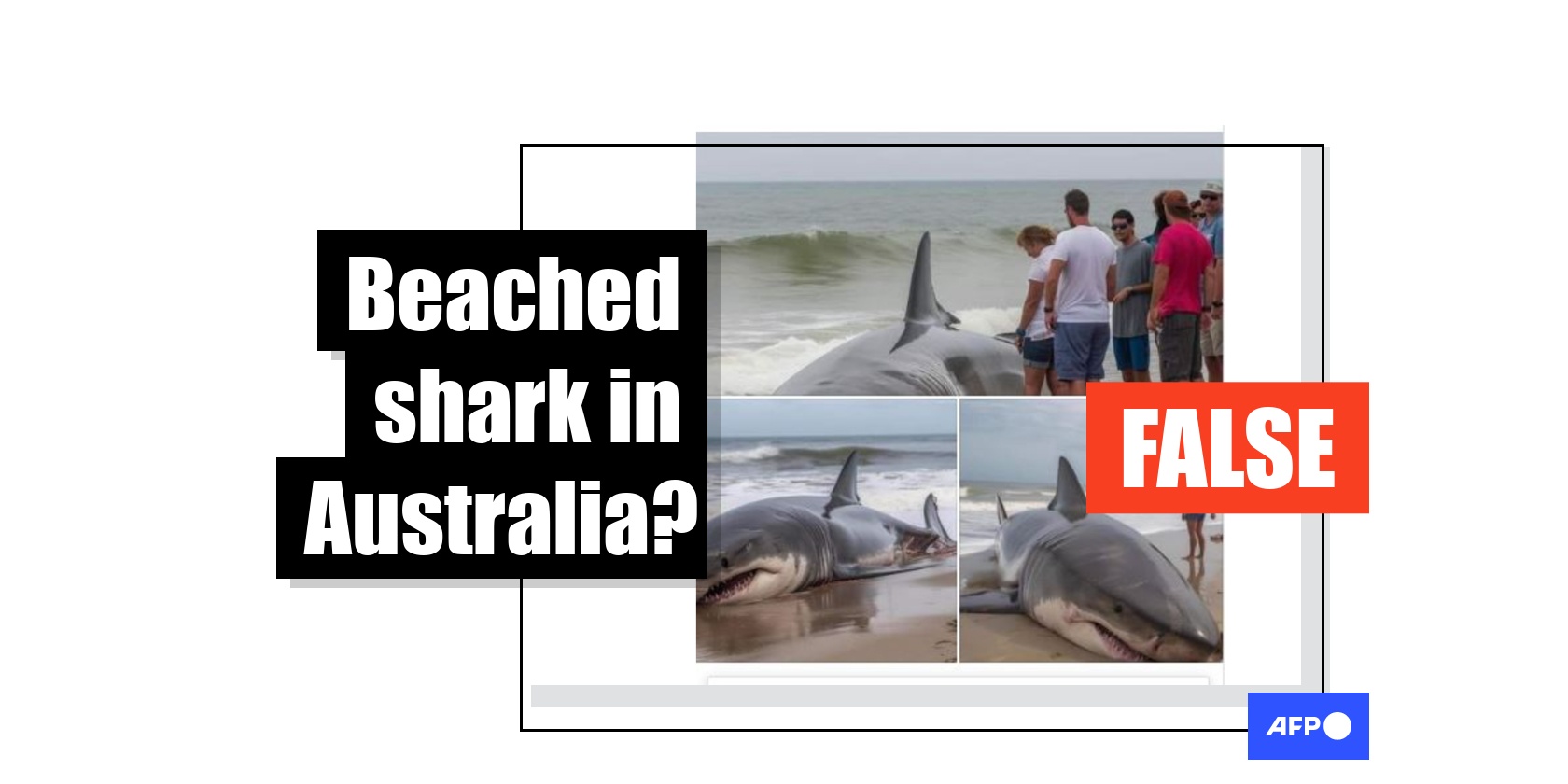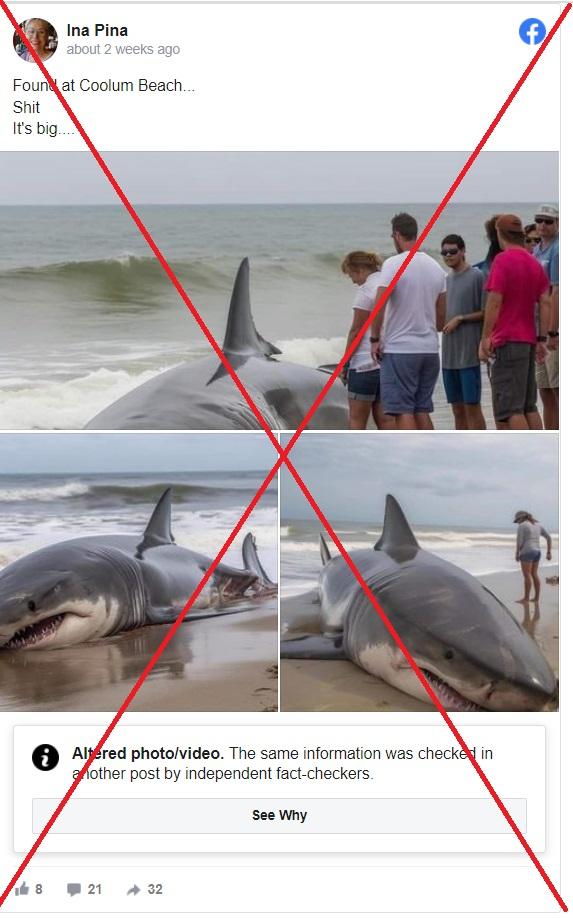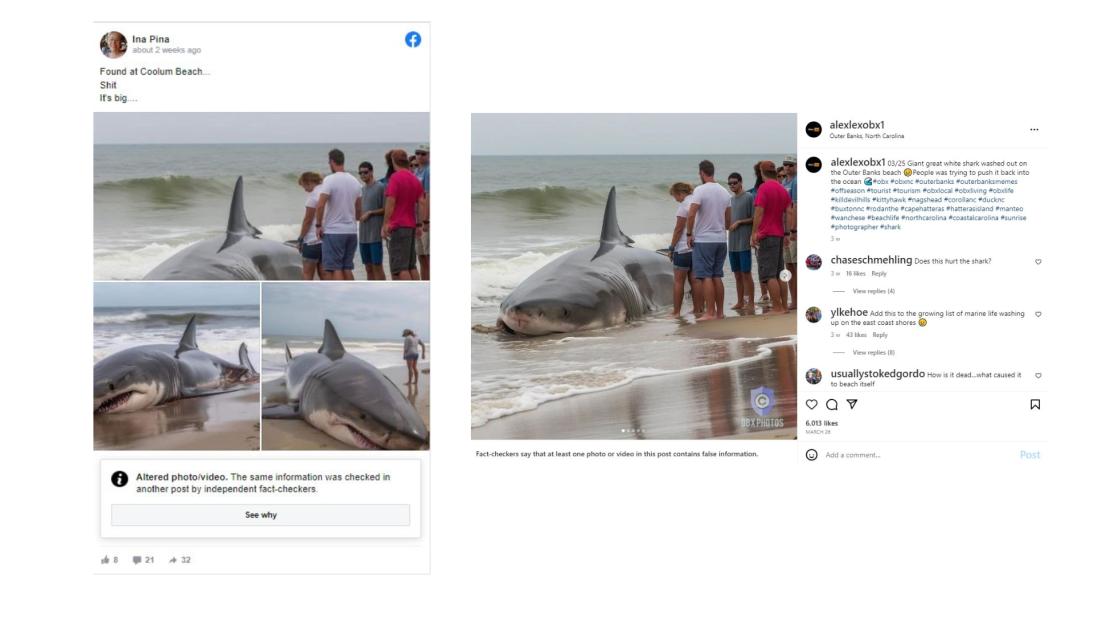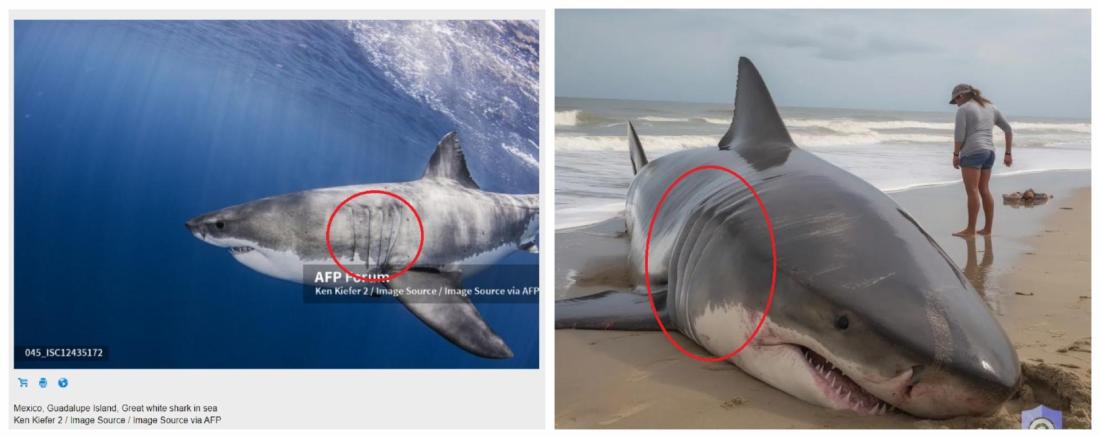
Social media users fall for digitally created 'beached shark' images
- This article is more than two years old.
- Published on April 19, 2023 at 09:45
- Updated on April 19, 2023 at 09:56
- 3 min read
- By Kate TAN, AFP Australia
"Found at Coolum Beach," reads a Facebook post from April 6, referring to a popular surfing spot in Australia's Queensland state.
The picture appears to show onlookers gathered around a large shark washed up on a beach.

Similar Facebook posts shared more than 600 times here, here, here and here also said the shark was found at Coolum Beach.
Another Facebook user claimed the incident happened on Tuckamore Beach in South Australia.
News agencies Reuters and the Associated Press previously debunked posts -- for example here, here and here -- which claimed the images were taken at the Outer Banks islands in the US state of North Carolina.
Some Facebook users appeared to believe the pictures showed a genuine shark.
"Wow, that's big enough to keep me out of the water for a week or two. If it's dead, it must be old age. Pity, beautiful specimen," read one comment.
"How big is it! I wonder what happened," another said.
Digital art enthusiast
A Google reverse search found the pictures shared on Instagram on March 26 by a user called Alex Lex, who regularly shares digital artwork, for example here and here.
He told AFP that he created the shark images using image editing software, but did not give further details.
According to US media reports, Lex's pictures have previously fooled people, including one that appeared to show waves crashing over a pier in the Outer Banks that went viral.
He told the ABC11 news channel in September 2017 that his creations did not intend to mislead people.
"I don't try to scary nobody (sic)," he told ABC 11. "I post photos only on OBX (Outer Banks) local pages, so all the people around know me and my photos."
"And next time, before someone what's (sic) to share my photos, they should know they are Photoshopped."
Below is a screenshot comparison of the pictures shared in a false Facebook post (left) and on Lex's Instagram account (right).

Meanwhile, a marine biologist said the photos were fake as the shark did not have the right number of gill slits (openings) on its side.
Colin Simpfendorfer, a marine biology professor at James Cook University in Queensland pointed out that great white sharks have five gill slits, but the shark in the fake pictures had four on one side and six on the other.
Below is a screenshot comparison of a genuine photo of a great white shark published in AFP's archives (left) and one image in the false posts (right) with the gill slits circled:

While there have been past reports of sharks washed up on beaches in Australia, authorities said there had been no recent reports of such an incident at Coolum Beach or Tuckamore Beach.
"We have had no reports of a shark washing up on Coolum Beach," a spokesperson from the Department of Agriculture and Fisheries in Queensland told AFP on April 14.
"A shark of that size would certainly have generated considerable interest."
A spokesperson from the Department for Environment and Water of South Australia said on the same day: "This post is not correct and that the shark did not wash up on Tuckamore Beach."
Australia's Commonwealth Scientific and Industrial Research Organisation estimated in 2020 that there were up to 12,802 white sharks off the country's east coast and around 2,250 sharks in southwestern waters.
Copyright © AFP 2017-2026. Any commercial use of this content requires a subscription. Click here to find out more.
Is there content that you would like AFP to fact-check? Get in touch.
Contact us
